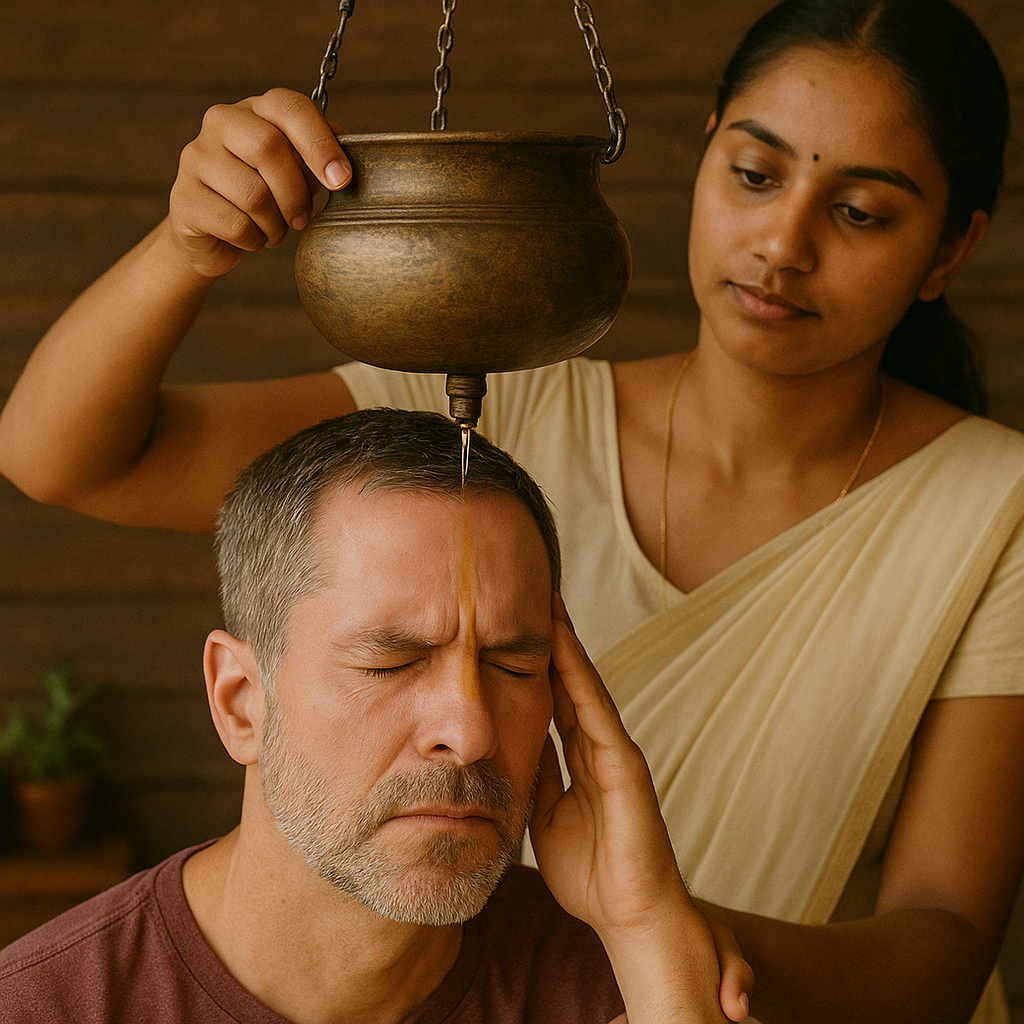How to Cure Vertigo Permanently: Ayurvedic Treatments, Exercises, and Lifestyle

If you’ve ever stood up too fast and the world spun sideways—or worse, if you’ve had that dizzy, swaying sensation sneak up on you while doing nothing at all—you know how unsettling vertigo can be. It’s not just a little head rush. It can feel like your whole inner compass has gone haywire. I’ve spoken with people who’ve canceled travel plans, missed work, or avoided simple tasks like taking a shower because of the fear of spinning or falling.
So... how to cure vertigo permanently? Can it really be done without relying forever on pills or patchy solutions? Let’s get real: modern medicine offers fast relief, but long-term balance? That’s trickier. Ayurveda, the ancient Indian system of healing, has a very different take—one that’s more holistic, slower, maybe—but it aims at restoring your entire system, not just quieting symptoms. This guide explores what that really looks like. From vertigo treatments at home to exercises for vertigo, we’ll walk through grounded, practical ways to support your nervous system and stop the spinning—hopefully for good.

Can Vertigo Be Cured Permanently?
Why Recurring Dizziness Happens in Ayurveda
According to Ayurveda, vertigo isn’t just a random malfunction in the inner ear—it’s a signal. Often, it points to a Vata imbalance, which in plain language means your body’s air and space elements are a little out of whack. Think dryness, lightness, irregularity—those things that make you feel “ungrounded.” Vata governs the nervous system, and when it's disturbed, symptoms like dizziness, confusion, and even anxiety can follow.
But—and this is key—Vata imbalances don’t show up in isolation. They’re often triggered by things we don’t even register: erratic eating, too much screen time, skipping rest, emotional stress. You might be doing “everything right” and still feel wobbly. That’s why Ayurveda doesn’t just ask what is happening, but why—and then gently nudges your system back into balance.
Healing Requires Nervous, Mental, and Energetic Balance
Vertigo isn’t always a physical issue. Sure, there’s often something going on with your inner ear or balance centers, but in Ayurveda, that's only part of the picture. Your energy levels, sleep patterns, and even your thoughts can influence your sense of balance.
Here’s something that doesn’t get said enough: you can’t separate your brain from your body. And you shouldn’t try. A nervous system that’s constantly “on” is like a spinning top—it keeps whirling until it crashes. If you want to cure vertigo permanently, it’s not just about medicine for vertigo or a quick vertigo exercise (though we’ll cover those). It’s about slowing down the whole system. Regulating. Rebalancing. Remembering what “steady” feels like, inside and out.

Ayurvedic Treatment for Vertigo: Gentle, Lasting Relief
Let’s talk solutions—real, sustainable ones. Ayurveda isn’t about suppressing vertigo with a quick pill and hoping it doesn’t come back next month. It’s about creating a steady foundation inside your body so that vertigo has nowhere to land. It’s surprisingly intuitive once you get into it.
Herbs and Formulas That Calm the Nervous System
I’ve seen Ashwagandha change lives. Not in a “miracle cure” kind of way, but in that slow, grounding way that makes you realize you haven’t felt anxious—or dizzy—in a while. It’s classified as a Rasayana, which basically means rejuvenating. It nourishes your nervous system from the inside out.
Other helpful herbs? Brahmi (a brain tonic), Shankhpushpi (great for calming overactive thoughts), and even Guduchi (amazing for balancing all three doshas). These aren’t one-size-fits-all though. Seeing a practitioner matters. They can tailor your formula to match your symptoms, digestion, lifestyle. That’s what makes it work.
Not into capsules? You can try simple teas too—ginger, holy basil, or licorice root. They're gentle but powerful for managing vertigo treatment at home.
Oils and Therapies for Head, Neck, and Ear Rebalance
Ayurveda loves oil. For vertigo treatment, that’s actually a good thing. Because where do you hold tension? Neck, jaw, scalp, sometimes even in the ears. All connected.
Abhyanga (warm oil massage) using sesame or Brahmi oil can soothe the whole nervous system. Do it before your shower. Even five minutes helps. And if you’re open to therapies, things like Shirodhara (where warm oil streams onto the forehead) are game-changers for mental and energetic reset.
Nasya is another go-to. That’s when medicated oils are dropped into the nostrils to support the head and sinuses. Sounds odd? Maybe. But for people with vestibular migraines or sinus-related vertigo, it can be magic.
Diet Adjustments to Support Groundedness
Food matters. I know, I know—we all want to skip this part. But if you're dealing with dizziness, your digestive fire (Agni) is probably compromised. Cold smoothies, dry crackers, random snacking—these things may seem innocent, but they totally aggravate Vata.
So here’s the vibe: warm, moist, simple. Think rice porridge with ghee, cooked veggies, herbal teas. Avoid raw, cold, or overly spicy stuff for a bit. And don’t skip meals. Regular eating times are more powerful than you think—like a rhythm for your whole system.
Oh—and hydrate. Properly. Not by chugging icy water, but with warm water or cumin-coriander-fennel tea. Dehydration is a massive trigger for vertigo and often overlooked.
Exercises for Vertigo Relief and Prevention
Let’s be honest—when you’re dizzy, moving your head is the last thing you want to do. But hear me out. Gentle movement, done right, can actually retrain your balance system. It can tell your brain: “Hey, this is normal. You’re safe.”
Simple Movements for Daily Practice
You don’t need a gym. You don’t need a routine from a fancy app. Just try this:
-
Sit upright, eyes open. Slowly turn your head left to right—like you’re scanning a room—10 times.
-
Then, do the same with up-and-down motions.
-
Add gentle side tilts (ear to shoulder) to loosen the neck.
-
Try standing with your feet together, eyes closed, for 30 seconds. It’s harder than it sounds and builds stability over time.
These are known as vestibular rehabilitation exercises, and they work by re-coordinating your eyes, ears, and brain. If you're dealing with BPPV (Benign Paroxysmal Positional Vertigo), look into the Epley maneuver—though it’s best learned from a professional at first.
Yoga, Breathwork, and Eye-Focus Techniques
Yoga’s slower pace can be a blessing when your world is spinning. Focus on grounding poses—Child’s Pose, Legs-Up-the-Wall, or even just lying down with your feet pressed against a wall.
Add pranayama (breathwork) like Nadi Shodhana (alternate nostril breathing) to settle your mind and clear sensory overload. And believe it or not, eye exercises—like tracing figure-eights or focusing on a distant object—can reduce dizziness over time.
Consistency is key. Ten minutes a day beats one hour once a week.

Vertigo Treatment at Home: Practical Daily Support
Dinacharya to Support Inner Stability
Ayurveda loves daily rhythm—Dinacharya. It’s not about being perfect; it’s about giving your body a sense of when things happen. That alone reduces anxiety and calms the nervous system.
-
Wake up around sunrise.
-
Scrape your tongue (it helps digestion and indirectly affects mental clarity).
-
Warm oil massage before your shower.
-
Eat at consistent times.
-
Sleep by 10 p.m.
Sounds old-school? Sure. But these routines anchor your body so it doesn’t feel like it’s floating through chaos.
Evening Routines to Prevent Night-Time Dizziness
Dizziness at night often points to excess Vata and sensory overload. Here’s a simple wind-down:
-
Warm foot massage with sesame oil.
-
Chamomile or Brahmi tea.
-
Turn off screens at least 45 minutes before bed.
-
Soft lighting, no loud music, no late-night snacking.
Sleep is your repair system. Treat it like medicine.
Aromatherapy and Calming Sounds for Sensory Balance
The nose is a direct highway to the brain. Calming essential oils—lavender, sandalwood, vetiver—can stabilize mood and reduce dizziness triggers. Diffuse them or just dab on your wrists.
Soft ambient sounds—rainfall, ocean waves, or Vedic chanting—can rewire your brain’s association with movement. That sounds weird, but it works. You're retraining your sensory filters.
What to Avoid When Healing from Vertigo
Common Triggers: Dehydration, Heat, Irregular Sleep
Vertigo flares up when your system is stressed. That includes:
-
Skipping water (especially in dry or hot weather)
-
Getting too hot (Vata and Pitta don’t like heat excess)
-
Inconsistent sleep patterns (Vata thrives on regularity)
Even one off-night can throw you off. Not to guilt-trip—just to help you notice the patterns.
Foods That Increase Vata or Disrupt Inner Balance
Cold salads, popcorn, raw veggies, caffeine—all very Vata-aggravating if your system’s sensitive. Doesn’t mean you can never have them again, but maybe ease up until your baseline is steady.
Instead, go for warm, oily, well-spiced foods. Ayurveda loves simplicity and comfort when the body’s confused.
Conclusion
Vertigo doesn’t have to define you. It’s scary, yes. Disorienting, absolutely. But it’s also your body’s way of saying, "I need help. I need rhythm. I need ground."
How to cure vertigo permanently isn’t about suppressing symptoms—it’s about slowly, lovingly rebuilding your inner stability. Ayurveda offers that: herbs, oils, foods, and habits that whisper balance back into your system.
You don’t have to do it all at once. Just start small. A little oil. A warm breakfast. A stretch before bed. Your body remembers balance—you just have to give it the space to come back.
And maybe, just maybe, you’ll wake up one day and realize: the spinning stopped.
FAQs
Can vertigo be permanently cured without medication?
In many cases, yes—especially if the root cause is Vata imbalance, stress, or lifestyle-related. Ayurveda focuses on long-term healing through herbs, diet, and daily rhythm.
What are the best exercises for vertigo relief?
Simple head movements, eye tracking, balance poses, and yoga postures like Child’s Pose. Consistency is more important than intensity.
Which daily habits can prevent vertigo from coming back?
Regular meals, adequate hydration, early sleep, warm oil massage, and minimizing overstimulation (screens, noise, multitasking).
Got any more questions?
Ask Ayurvedic doctor a question and get a consultation online on the problem of your concern in a free or paid mode.
More than 2,000 experienced doctors work and wait for your questions on our site and help users to solve their health problems every day.

